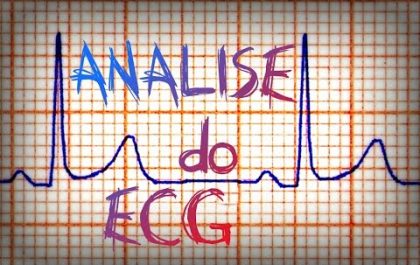London, UK – Results from a substudy of the Hypertension in the Very Elderly Trial (HYVET), the HYVET-cognitive function assessment (HYVET-COG), suggest that lowering blood pressure in individuals aged 80 and older might reduce dementia risk [1].
When combined with results from other placebo-controlled trials, the results of the HYVET-COG study show that antihypertensive treatment leads to a 13% reduction in this patient population.
"The results from HYVET-COG suggest a possible additional benefit associated with antihypertensive treatment in addition to the cardiovascular benefits as already demonstrated in this very elderly group," study investigator Dr Ruth Peters (Imperial College London, UK) said in a statement.
The study is published online July 8, 2008 in Lancet Neurology.
Inconclusive evidence
While observational epidemiological studies have linked hypertension to an increased risk of incident dementia, the effects of antihypertensive therapy on cognitive function in controlled trials have been conflicting, the authors note. Further, they point out that meta-analyses of such trials have failed to provide conclusive evidence of benefit.
Designed to assess the risks and benefits of treating hypertension in the elderly, HYVET also included an assessment of cognitive function. The main trial was stopped early when investigators found a substantial reduction in total mortality and stroke during a second preplanned interim analysis.
The HYVET-COG study was a double-blind, placebo-controlled trial in which subjects 80 years and older diagnosed with hypertension (systolic pressure between 160 and 200 mm Hg and diastolic pressure of 110 mm Hg) were randomly assigned to receive 1.5-mg slow-release indapamide, with the option of 2- to 4-mg perindopril, or placebo.
Target blood pressure was 150 mm Hg systolic over 80 mm Hg diastolic. Participants had no dementia at baseline, and cognitive function was assessed at baseline and annually using the Mini-Mental State Examination (MMSE).
Combined results favor treatment
Possible dementia cases, which were defined as those who had a drop in MMSE scores that fell below 24 points or by more than three points in a year, were assessed using standard diagnostic criteria and expert review.
A total of 3336 individuals who had at least one follow-up assessment (mean 2.2 years) were included in the analysis. Of these individuals, 1687 were assigned to the active treatment group and 1649 to placebo.
The mean reduction in blood pressure at two years between the treatment and placebo groups was a 15-mm-Hg reduction in systolic pressure and a 5.9-mm-Hg drop in diastolic pressure.
Rates of dementia were 38 per 1000 patient-years in the placebo group vs 33 per 1000 patient-years in those taking antihypertensive therapy.
The difference did not reach statistical significance. However, the researchers report, when these data were combined in a meta-analysis of other placebo-controlled trials of antihypertensive therapy, the combined risk ratio favored treatment.
"Antihypertensive treatment in elderly patients does not statistically reduce incidence of dementia. This negative finding might have been due to the short follow-up owing to the early termination of the trial or the modest effect of treatment. Nevertheless, the HYVET findings, when included in a meta-analysis, might support antihypertensive treatment to reduce incident dementia," they conclude.
Still worthwhile
In an accompanying editorial, Dr Ingmar Skoog (Göteburg University, Sweden) says that regardless of whether antihypertensive therapy reduces dementia risk, the results of the HYVET study show that treating high blood pressure in the very elderly is a worthwhile endeavor because it protects against stroke and total mortality [2].
Furthermore, he writes, "antihypertensive treatment seems to be safe in relation to brain function in elderly people. Most individuals with hypertension or dementia are not detected by the healthcare system, but the importance of diagnosing cognitive impairment in elderly patients with hypertension needs to be emphasized, because low cognitive function might have implications for patient compliance."
Artigos relacionados
Veja também
Medicamentos para emagrecer são seguros para o coração?
Atualmente temos alguns medicamentos aprovados pela ANVISA para tratar a obesidade no Brasil, como o Orlistat, Sibutramina, Liraglutida e Semaglutida. Orlistat (Lipiblock, Xenical) 1- Atua inibindo a absorção de parte da gordura dos alimentos. 2- Não apresenta efeitos sobre o sistema cardiovascular, logo, pode ser…
Alteração difusa da repolarização ventricular (ADRV)
O termo alteração difusa de repolarização ventricular é utilizado em laudos de eletrocardiograma (ECG) para descrever alterações do segmento ST do ECG, como ausência, achatamento ou inversões assimétricas das ondas T. Alguns médicos podem empregar a abreviatura ADRV. A onda T é um dos elementos…
Holter (eletrocardiografia dinâmica de 24 horas)
Norman Holter foi um biofísico norte-americano que inventou o monitor Holter em 1949, um aparelho portátil para a monitorização contínua da atividade elétrica do coração por 24 horas ou mais (eletrocardiografia dinâmica). Para a monitorização contínua do traçado eletrocardiográfico é necessário colocar eletrodos na parede…
Cinco bons motivos para você fazer seu check-up cardiológico
Abaixo enumeramos cinco bons motivos para as pessoas realizarem um check-up cardiológico: 1-Prevenção e Detecção Precoce: o check-up cardiológico é essencial para prevenir doenças cardiovasculares e detectar problemas de saúde cardíaca em estágios iniciais. A avaliação médica regular pode identificar fatores de risco, como hipertensão,…





